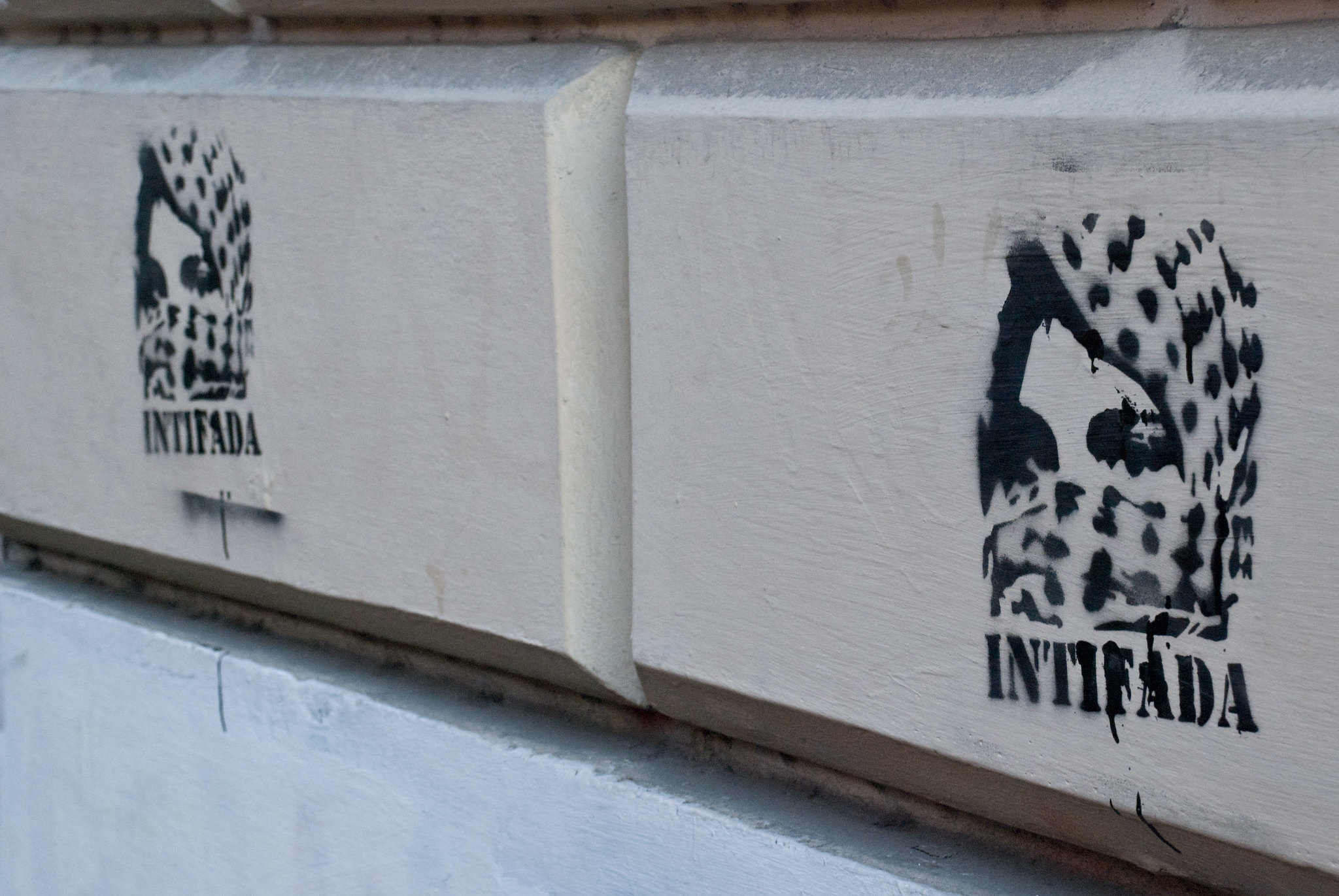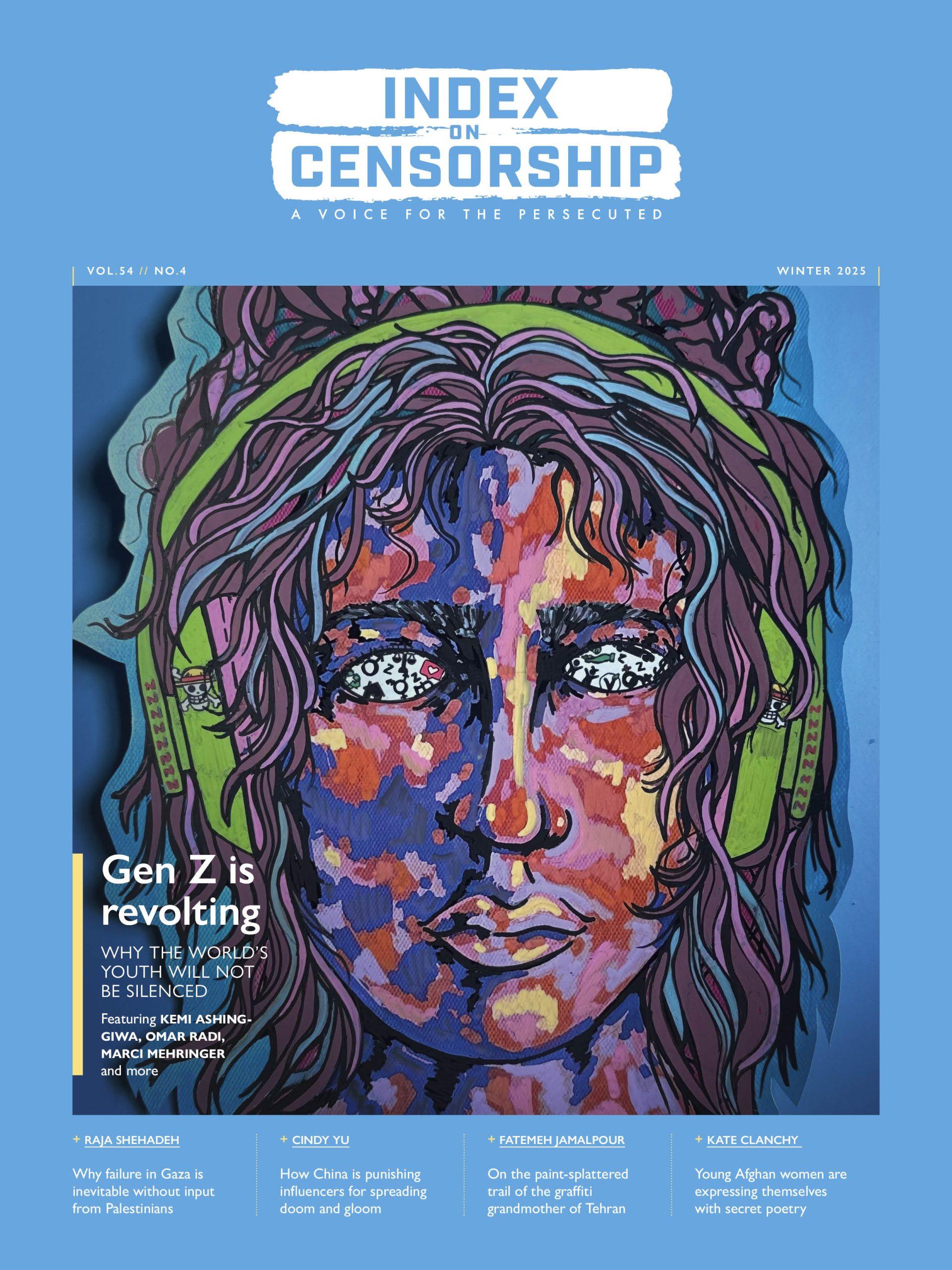[vc_row][vc_column][vc_single_image image=”116823″ img_size=”full” add_caption=”yes”][vc_column_text]I can’t remember the first time I heard the slogan “No voice is louder than the voice of the intifada”.
I was born at the peak of the intifada (uprising) in which this slogan first appeared, in 1988. I became more aware of it during the second uprising, at the start of the millennium when the slogan re-emerged.
When I chose the topic of my dissertation in sociology on the impact of a prevalent ideology in determining the options of sociological research in Palestinian universities, I found that the slogan summarised how the existent national ideology works against critical visions in social sciences and tries to silence them. After research, I found that the slogan was a modification to a slogan that existed during phases of tyranny in Arab countries in the last century, namely “No voice is louder than the voice of the battle.”
Ever since I was born, I’ve been living through the “battle” in which no other voice should prevail. This is what happens when you live in a conflict that has not been resolved for more than 70 years. I live in Ramallah in the West Bank, an area that is subject to Israeli military occupation according to the UN since 1967.
There have been national movements that worked towards ending the occupation but these were transformed into an authority that signed a peace agreement with Israel and that hasn’t led to peace. Instead, there were understandings reached that resulted in administrative and security coordination.
At various times, this led to calm periods full of economic opportunities and cultural activity that were supported internationally. It seemed as if the battle’s voice receded or faded away. Yet the national authority maintained the battle discourse, which must remain above all others.
Years ago, on the wall of an oil press, in the village of my maternal grandparents, I read a slogan that shocked me: “You are either a mine that explodes under the feet of the enemy or you shut up.” Underneath was the signature of a leftist faction. I realised that I faced two choices: I am either dead –because I am a mine that explodes under the enemy’s feet – or I am muted.
In 2016, when I wrote my novel A Crime in Ramallah, I was subject to a dual-pronged attack.
The first manifested itself legally through the public prosecutor and the Palestinian Authority (PA), who confiscated my novel from bookstores and libraries, issued an arrest warrant against me and detained the distributor of the novel.
The second was of a popular dimension in social media, which fed on the prevalent ideology and its logic. This incident highlighted the reality relating to freedom of speech in the areas controlled by the PA, through legal tools on the one hand and national tools connected to the prevalent ideology on the other. Accusations were hurled against me regarding public morals in the current law, along with charges of treason and insulting national symbols that are prevalent in the discourse of the “battle”.
The current laws in force in PA areas remain a topic of legal argument. These include the penal code of 1960, which is a regressive law with an abundance of violations to freedom of expression and speech in addition to violations of political freedoms, freedom of sexual orientation and freedom of women.
Further, the law is vague and can be maliciously misinterpreted. The arrest warrant was issued against me on this basis. Efforts to amend the law or enact a contemporary law that allows for even minimal freedom of expression have all failed.
In 2018, the electronic crimes law was issued which violated freedom of the press and online expression and statement. It included harsh penalties that had an impact on writers, journalists, artists and everyday people who have become hesitant to merely criticise the authorities with a post or tweet on social media.
Recently, and at an unprecedented level, major social media outlets have started censoring Palestinian content. Accordingly, I cannot write anything about the occupation and its practices in Arabic without the threat of my account being restricted or removed.
Due to the weak algorithms of these sites in the Arabic language, the context thus becomes irrelevant. So merely mentioning certain words might result in the restriction or cancellation of my account. Two options here remind me of the graffiti on the wall I previously mentioned: I either shut up or become non-existent in this cyberspace.
Today as I write these words, I am unable to freely express my thoughts on both sides of the “battle.” I fear that many began surrendering indeed to the truth that there is no voice above its voice, and I worry that I am one of them.
[/vc_column_text][/vc_column][/vc_row]





